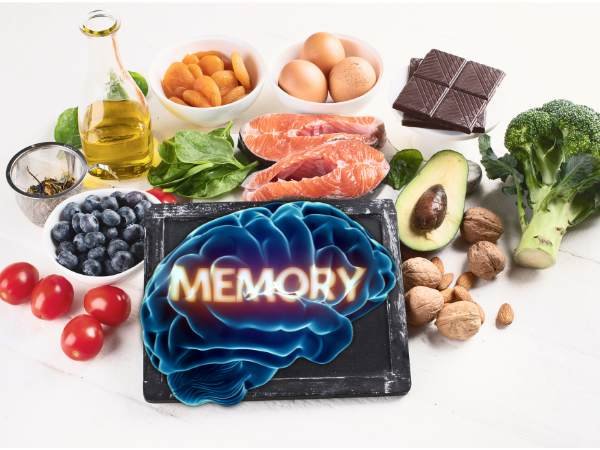Introduction

In 2025, people don’t just take supplements to stay healthy—they want them to boost brain power too. If you’ve ever asked yourself, “What’s better for my focus and memory—omega‑3 or multivitamins?” you’re not alone. Many of us already take one or both, but we’re still not sure which really works for the brain. New studies show that omega‑3 benefits for brain go beyond basic health, while multivitamins can still help slow down memory loss. In this blog, we’ll break down the latest research, real results, and expert tips so you can pick what’s best for your brain.
What Are Omega‑3 Fatty Acids?

Omega 3 benefits for brain function extend far beyond general wellness: DHA and EPA are critical to neuronal structure and neurotransmitter communication. A 2023 meta‐analysis demonstrated that omega‑3 brain repair mechanisms include anti‑inflammation and enhanced glymphatic clearance, promoting removal of toxins from brain tissue ScienceDirect. Omega‑3 brain repair starts with DHA, which makes up roughly 40 % of brain PUFAs and 50 % of neuronal membrane lipids, supporting choline and glycine transport and reducing cognitive decline risk Wikipedia. Yes, omega‑3 improves the brain by keeping your brain cells healthy and helping them work better. Therefore, reading about omega‑3 benefits for brain and best omega‑3 for brain health remains essential even for well‑informed readers—they may be on the wrong form (ethyl ester vs triglyceride) and missing real focus‑boosting potential. One of the biggest omega 3 benefits for brain is that it helps your brain cells talk to each other faster and more clearly.
What Are Multivitamins?

Multivitamins are typically seen as a “catch‑all,” but in 2025 we know they must be judged on nutrient profile and bioavailability. A large COSMOS-Web trial involving over 3,500 adults aged 60+ found that daily multivitamin intake slowed memory decline by about three years compared to placebo, meaning multivitamins can slow cognitive aging and support memory recall over time. Still, multivitamins offer variable direct impact on focus versus what omega‑3 offers—unless specific deficiencies (e.g. B12 or magnesium) are addressed. Studies also show that multivitamin supplementation improves immediate free recall memory (SMD ~0.32) but has limited effect on attention or executive domains (pubmed). So readers familiar with multivitamins should ask: is your multivitamin targetting focus or just filling gaps? Scientists say omega-3 benefits for brain include sharper memory, better focus, and faster problem‑solving.
Scientific Comparison: Focus, Memory & Brain Repair

When we directly compare omega‑3 vs. multivitamins for cognitive benefit, the emerging pattern is clear. Omega‑3 clears brain fog by feeding your brain the healthy fats it needs to think clearly. A 2022 Framingham-based study of midlife adults (~46 yrs) linked higher omega‑3 index in red blood cells with larger hippocampal volume, better processing speed, and longer-term memory—precursors to better focus and slower brain aging news.uthscsa.edu. Contrast that with the COSMOS meta-analysis showing multivitamins slow global cognitive aging by ~2 years, with clear episodic memory improvements but mixed findings on executive function or attention control Mass General Brigham. Meanwhile, reviews of omega‑3 interventions show reliable enhancements in attention, processing speed, and memory, particularly with DHA for focus and sustained attention grassrootshealth.net. So if your priority is brain repair and sharper focus, omega‑3 benefits for brain clearly exceed what multivitamins can do on their own. A key omega 3 benefit for brain health is its ability to protect your brain from age‑related memory loss.
Who Needs What?

Omega‑3 Priority
Ideal for those who lack dietary fish or have chronic inflammation, digital overload, or post‑injury recovery needs. Data show omega‑3 improves cognitive well‑being, increases cerebral bloodflow, and supports learning and brain repair mechanism even in elderly with mild cognitive impairment pmc. Omega‑3 benefits for brain memory and focus are most pronounced in users with low baseline DHA/EPA.
Multivitamin Priority
Best for older adults (age 60+), especially with poor micronutrient status. COSMOS trials suggest a daily multivitamin can slow cognitive aging by roughly two to three years, improving episodic memory and global cognition—though the effect on real-life focus is modest Health. Multivitamin benefits are most reliable when addressing known deficiencies (e.g. folate, B12, iron, magnesium).
Both Together?
For those recovering from brain injury, with long COVID neuro‑symptoms, or extreme burnout, combining high‑dose omega‑3 for brain repair plus a tailored multivitamin may be useful—though there’s no RCT yet showing synergy.
Expert Tips: Timing, Form, and Synergies

Many studies show omega 3 benefits for brain by repairing damaged cells and reducing brain inflammation. If you’re targeting focus and brain repair, timing and form matter. Best omega‑3 for brain health is usually triglyceride or phospholipid form (e.g. algae‑based DHA/EPA), as absorption is superior to ethyl ester forms. Studies recommend doses between 1–2 g/day of combined EPA/DHA for cognitive outcomes, not exceeding 3 g/day per FDA guidance. Take omega‑3 with fat‑containing meals to enhance absorption. Customers report clearer focus when combining omega‑3 supplements with antioxidants like vitamin E—this may amplify brain repair effects via reduced oxidative stress.
When choosing a multivitamin, look for bioavailable B‑complex (B6, B12, folate), magnesium L‑threonate (which better crosses blood‑brain barrier), vitamin D/K blend, and avoid megadoses of vitamin A or E that may carry risk timesofindia.indiatimes.com. The COSMOS capsules (like Centrum Silver used in trials) had over 20 nutrients at moderate doses and were taken daily for at least two years to show benefit Health+1.
Breaking Myths & Common Misconceptions
Myth #1: Multivitamins prevent brain fog as effectively as omega‑3. False—multivitamins help memory via micronutrient support, but do not directly improve focus or processing speed like DHA/EPA does.
Myth #2: All omega‑3 supplements are equal. Wrong—many low-cost pills use ethyl ester or plant ALA forms that convert poorly to active DHA/EPA. Best omega‑3 for brain health requires marine sources or algal oil high in DHA.
Myth #3: Combining multivitamins and omega‑3 is always better. Not necessarily—if diet already covers the relevant vitamins and you don’t have micronutrient deficiency, extra multivitamins may waste money and risk overdosing fat‑soluble vitamins Wikipedia. Always tailor to individual nutrient status.
FAQs
Does omega‑3 improve the brain?
Yes — omega‑3 benefits for brain include improved memory, processing speed, and structural brain volume in regions like the hippocampus and white matter, especially in those with low baseline levels mdpi.com. Omega‑3 usually doesn’t make you sleepy, but it can help you sleep better at night. Always choose the best omega‑3 in a form your body can absorb easily, like triglyceride form.
Does omega‑3 clear brain fog?
Studies show omega‑3 reduces inflammation, supports glymphatic clearance, and enhances blood flow—mechanisms tied to reduced brain fog and clearer cognition ScienceDirectpmc.ncbi.nlm.nih.gov.
Does omega‑3 improve mental health?
Evidence is mixed—some studies suggest EPA‑dominant formulations ease depressive symptoms, yet others like the 2021 Cochrane review found only small, clinically weak effects in depression or anxiety Wikipedia.
What happens if I take omega‑3 every day?
At recommended doses (1‑2 g/day), daily omega‑3 supports improved cognition, reduced inflammation, and brain repair without serious side effects—FDA suggests max 3 g/day supplements.
Which omega‑3 is best?
Best omega‑3 for brain health is high‑purity DHA/EPA in triglyceride or phospholipid form (e.g. algal oil), taken daily alongside dietary fat for absorption. Taking omega‑3 every day can also protect your heart while boosting brain health.
Does omega‑3 make you sleepy?
Typically no—omega‑3 may improve mood and reduce inflammation, but isn’t sedating. In rare cases high dose may cause mild digestive discomfort.
Sum up,
For focus and brain repair in 2025: Omega‑3 is the specialist. It enhances attention, supports hippocampal volume, boosts processing speed, and helps clear brain fog via anti‑inflammatory and neurological mechanisms. One surprising omega 3 benefit for brain is that it may help lift your mood and reduce brain fog.
When to choose which: If you consume minimal fish, have memory slip or digital burnout—prioritize omega‑3 benefits for brain. If you’re age 60+, have bloodwork showing B12/folate/magnesium low, consider multivitamins. In select cases, well‑formulated use of both may help recovery, but it should be personalized and evidence‑informed.
“If focus is your goal in 2025, omega‑3 is the specialist — multivitamins are the generalist.”


